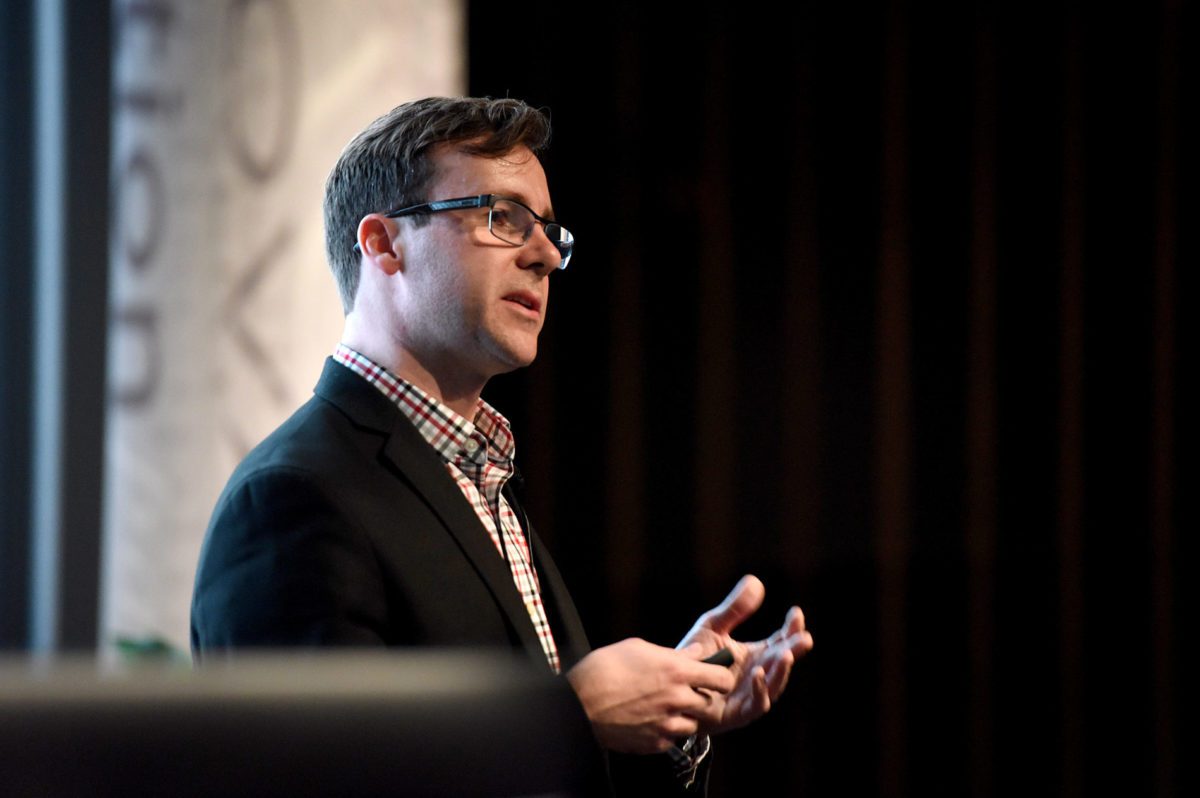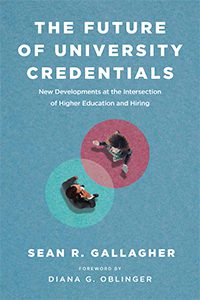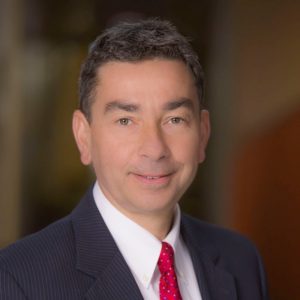
It’s a post-baccalaureate world, according to Sean Gallagher.
In an Oct. 24 lecture at the University of Wisconsin-Madison, Gallagher noted that today’s employers increasingly require credentials beyond a bachelor’s degree. But that doesn’t mean everyone must earn a traditional master’s degree or Ph.D. In a rapidly changing economy, digital badges, certificates, and other alternative credentials can prepare learners to fill specific workplace needs.

Gallagher is the chief strategy officer for Northeastern University’s Global Network and the author of The Future of University Credentials (Harvard Education Press). In his Madison talk, sponsored by the Center for Research on College to Workforce Transitions, he reported that 20 percent of U.S. job openings in 2016 called for a graduate degree. Millennials have shown a particularly strong interest in post-baccalaureate education, with 75 percent of college freshman reporting that they intend to earn an advanced degree.
In other words, Gallagher said, we are seeing a greater demand for lifelong learning—and more and more this will come in the form of micro-credentials that aren’t necessarily tied to a degree. Degrees are expensive and time-consuming, and sometimes professionals simply prefer to master particular skills as quickly as possible.
“The employment landscape of today and tomorrow is demanding credentials that are nimble and shorter, and address skills and competencies that are quickly changing,” Gallagher writes in The Future of University Credentials.
Tipping point
Both universities and industry offer such credentials, and Gallagher perceives a trend toward partnering between the two spheres.
On the higher education side, there is new pressure for “unbundling” programs—dividing them into modules that can serve as targeted and more affordable certificates. The unbundling process has become easier with the rise of online and hybrid courses, which now account for a third of all graduate education. Gallagher considers employers’ newfound acceptance of online credentials a crucial tipping point.

On the industry side, Gallagher pointed out that some employers now offer alternative credentials tied to their brands—for example, those related to the cloud or the internet of things. In general, he finds the demand for alternative credential among employers to be growing but still relatively modest.
On the other hand, Gallagher referred to “a big bang” in the market for providing alternative credentials. There are so many new programs and experiments that no single standard is yet recognized by all employers. That has left an opening for companies specializing in credential curation and documentation, such as LinkedIn and Parchment.
David Schejbal followed Gallagher to the podium to discuss the rise of alternative credentials from his perspective as dean of continuing education, outreach, and e-learning at UW Extension. Schejbal framed the issue in terms of people living longer and thus having longer careers. As a result, professionals will regularly seek continuing education to update their skills—and alternative credentials will play a key role in that evolving process.
To explore lifelong learning options at University of Wisconsin-Madison Continuing Studies, see ContinuingStudies.wisc.edu. For UW-Madison’s full menu of flexible and online degree and certificate programs, see pdc.wisc.edu/.